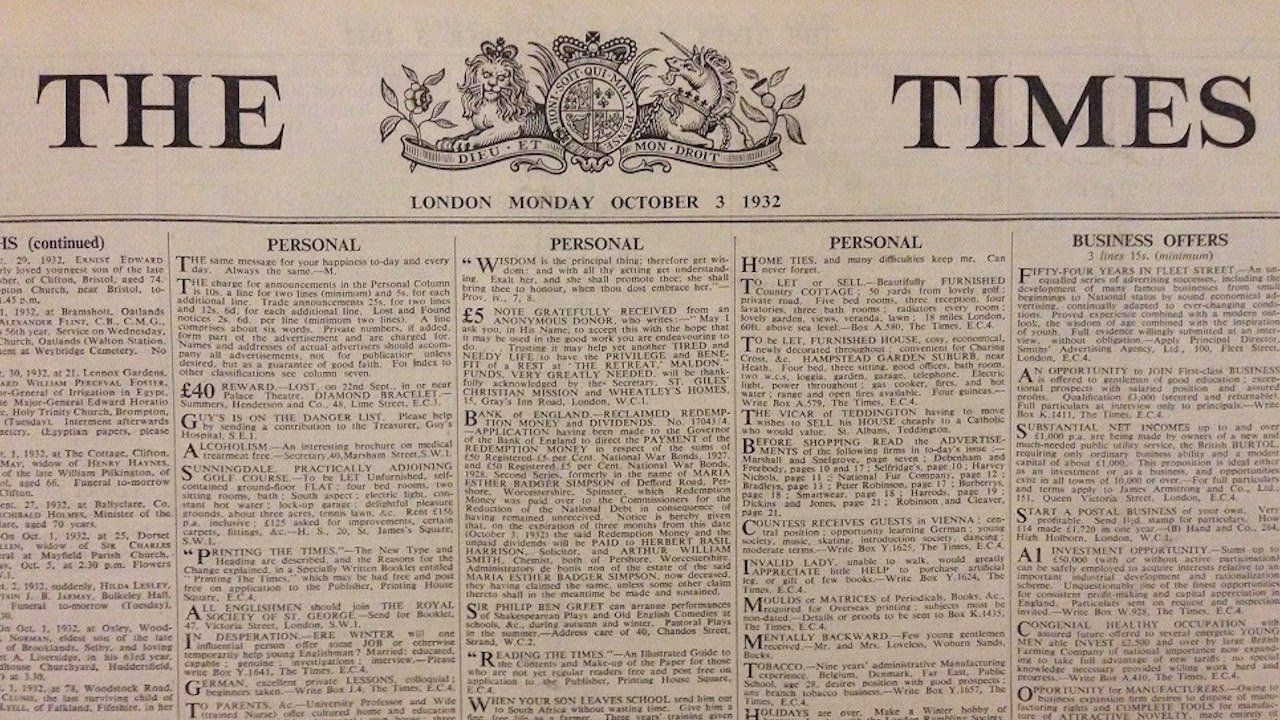THE LESSONS
which are being drawn from the unforgettable experiences through which we have lived during the past few days [i.e., The Munich Crisis] do not for the most part seem to me to go deep enough. The period of grace that has been given us may be no more than a postponement of the day of reckoning unless we make up our minds to seek a radical cure. Our civilization can recover only if we are determined to root out the cancerous growths which have brought it to the verge of complete collapse. Whether truth and justice or caprice and violence are to prevail in human affairs is a question on which the fate of mankind depends. But to equate the conflict between these opposing forces with the contrast between democracies and dictatorships, real and profound as is this difference, is a dangerous simplification of the problem. To focus our attention on evil in others is a way of escape from the painful struggle of eradicating it from our own hearts and lives and an evasion of our real responsibilities.
The basal truth is that the spiritual foundations of western civilization have been undermined. The systems which are in the ascendant on the continent may be regarded from one point of view as convulsive attempts to arrest the process of disintegration. What clear alternative have we in this country? The mind of England is confused and uncertain. Is it possible that a simple question, an affirmative answer to which is for many a matter of course and for many others an idle dream or sheer lunacy, might in these circumstances become a live and serious issue? May our salvation lie in an attempt to recover our Christian heritage, not in the sense of going back to the past but of discovering in the central affirmations and insights of the Christian faith new spiritual energies to regenerate and vitalize our sick society? Does not the public repudiation of the whole Christian scheme of life in a large part of what was once known as Christendom force to the front the question whether the path of wisdom is not rather to attempt to work out a Christian doctrine of modern society and to order our national life in accordance with it?
Those who would give a quick, easy or confident answer to this question have failed to understand it. It cannot even be seriously considered without a profound awareness of the extent to which Christian ideas have lost their hold over, or faded from the consciousness of, large sections of the population; of the far-reaching changes that would be called for in the structure, institutions, and activities of existing society, which is in many of its features a complete denial of the Christian understanding of the meaning and end of man’s existence; and of the stupendous and costly spiritual, moral, and intellectual effort that any genuine attempt to order the national life in accordance with the Christian understanding of life would demand. Realistically viewed, the task is so far beyond the present capacity of our British Christianity that I write as a fool. But if the will were there, I believe that the first steps to be taken are fairly clear. The presupposition of all else, however, is the recognition that nothing short of a really heroic effort will avail to save mankind from its present evils and the destruction which must follow in their train.










